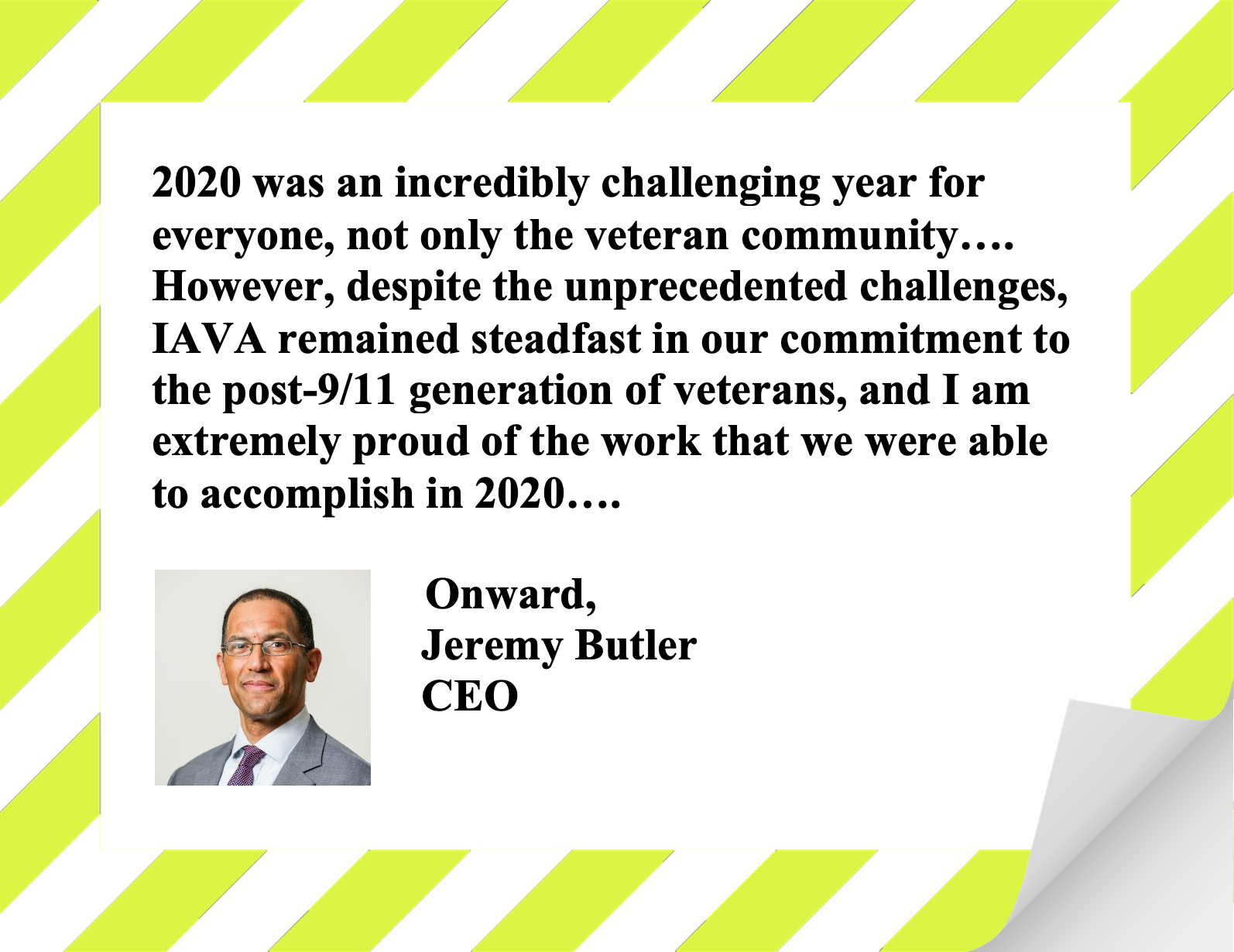IAVA's Policy Agenda for the 117th Congress
End Veteran Homelessness
End Veteran Homelessness
The VA did not accomplish its plans to end veteran homelessness by the end of 2015, but it has made some extreme progress. This is in large part due to private, local and nonprofit partners who have teamed with VA to implement a solution.
The number of homeless veterans has declined since 2010, and in fact, has dropped nearly 50% since 2010. Despite the huge advances made in recent years, there are still tens of thousands of veterans who remain homeless on a single night. The VA cannot solve this challenge alone. Veterans who struggle with substance abuse or were previously incarcerated are often unable to be placed in housing programs. Even more struggle to maintain a permanent home. In IAVA’s latest survey, 24% reported going without a home for over a year after they transitioned out of the military, and 81% reported couchsurfing temporarily. Housing and homelessness related referrals are among the services most requested through IAVA’s Quick Reaction Force (QRF); in 2020 alone, IAVA provided hundreds of veterans and family members with housing and homelessness related support.
This generation of veterans is challenging the traditional image of the single, male veteran that came to characterize homeless veterans following the Vietnam War. Homeless veterans today may have families or are women veterans. Women veterans historically are at higher risk for homelessness than their civilian counterparts. Providing safe facilities for women that will address their specific needs is critical. Ensuring these facilities also accept children is vital. Others are younger veterans who may just need temporary support. The VA must continue partnerships to align effective, dynamic services to these demographic shifts.
IAVA's Recommendations
- Expanding the definition of homelessness to include marginally sheltered or “couch surfing” veterans
- Collect data on the number of chronically homeless veterans and the number of homeless veterans by conflict-era in the annual survey of homeless veterans conducted by the VA and HUD
- Authorize new federal grants to subsidize specialized reintegration services for homeless women veterans and homeless veterans with children, including job training and placement, counseling, housing and child care
- Conduct a study to examine utilization rates, service delivery and coordination, and the geographic disparities of veterans’ homeless and housing programs, including the distribution of HUD-VASH vouchers
IAVA's Policy Priorities
Select a topic from the list below to learn about IAVA’s policy recommendations for the 117th Congress.

